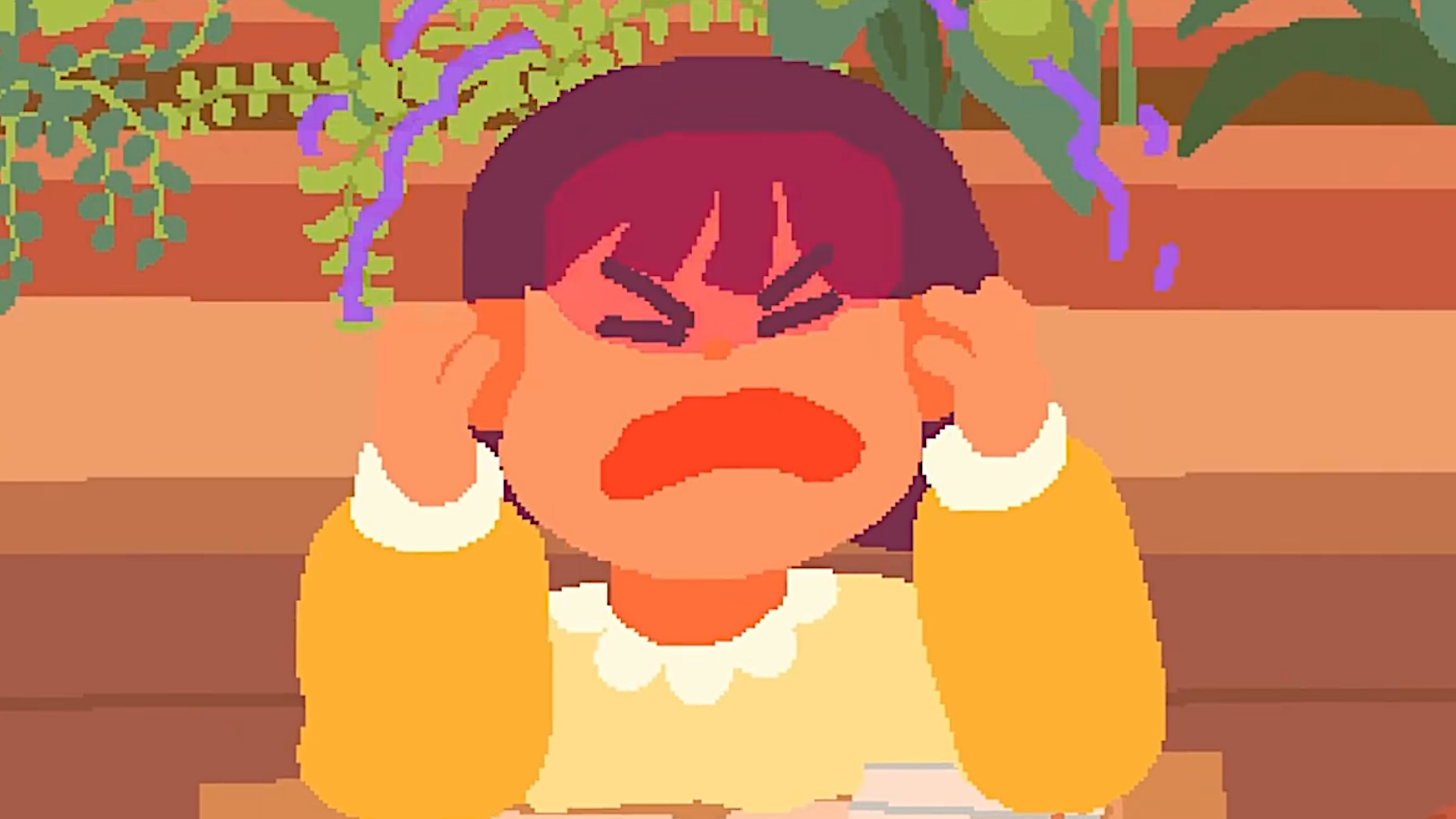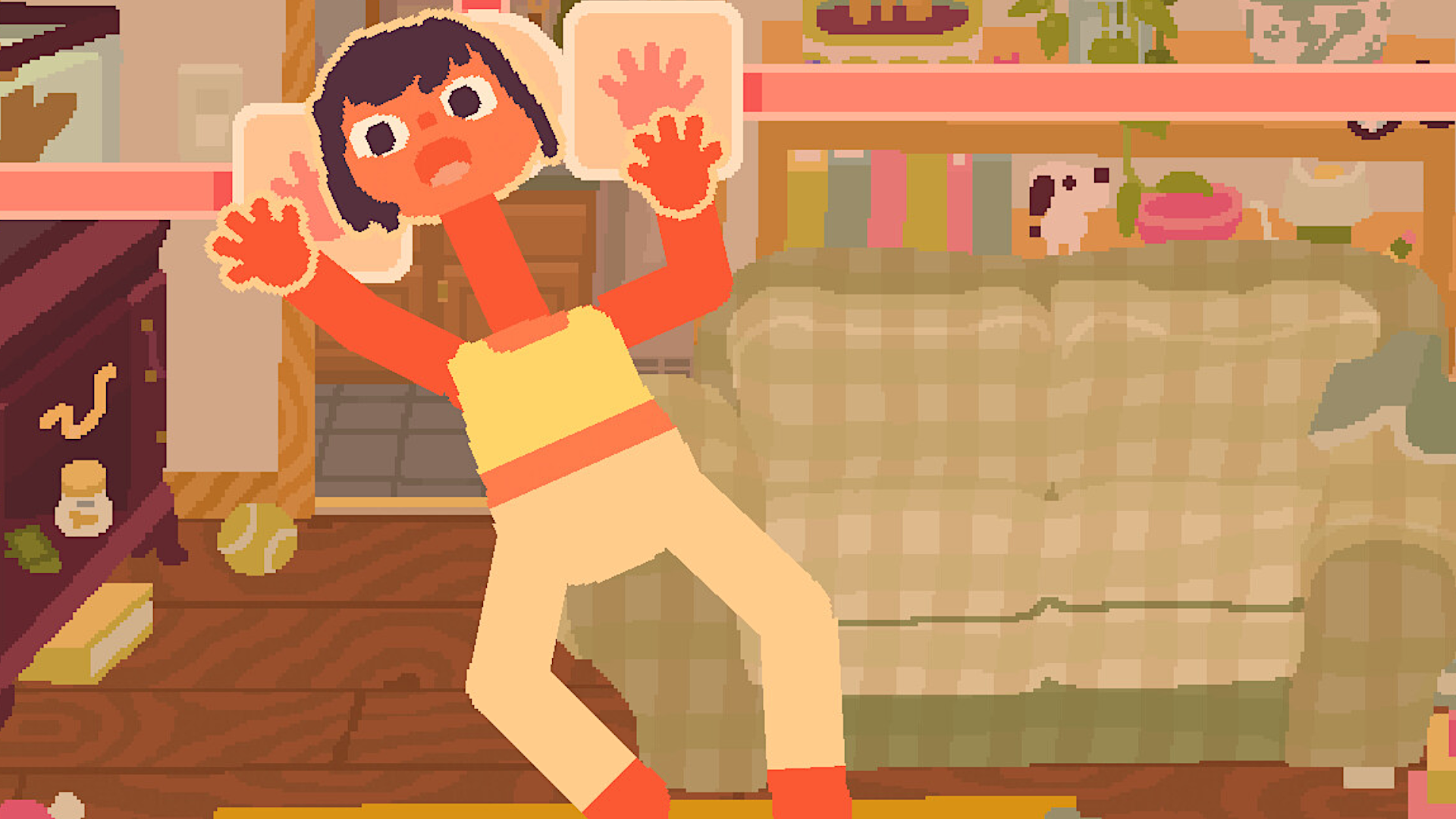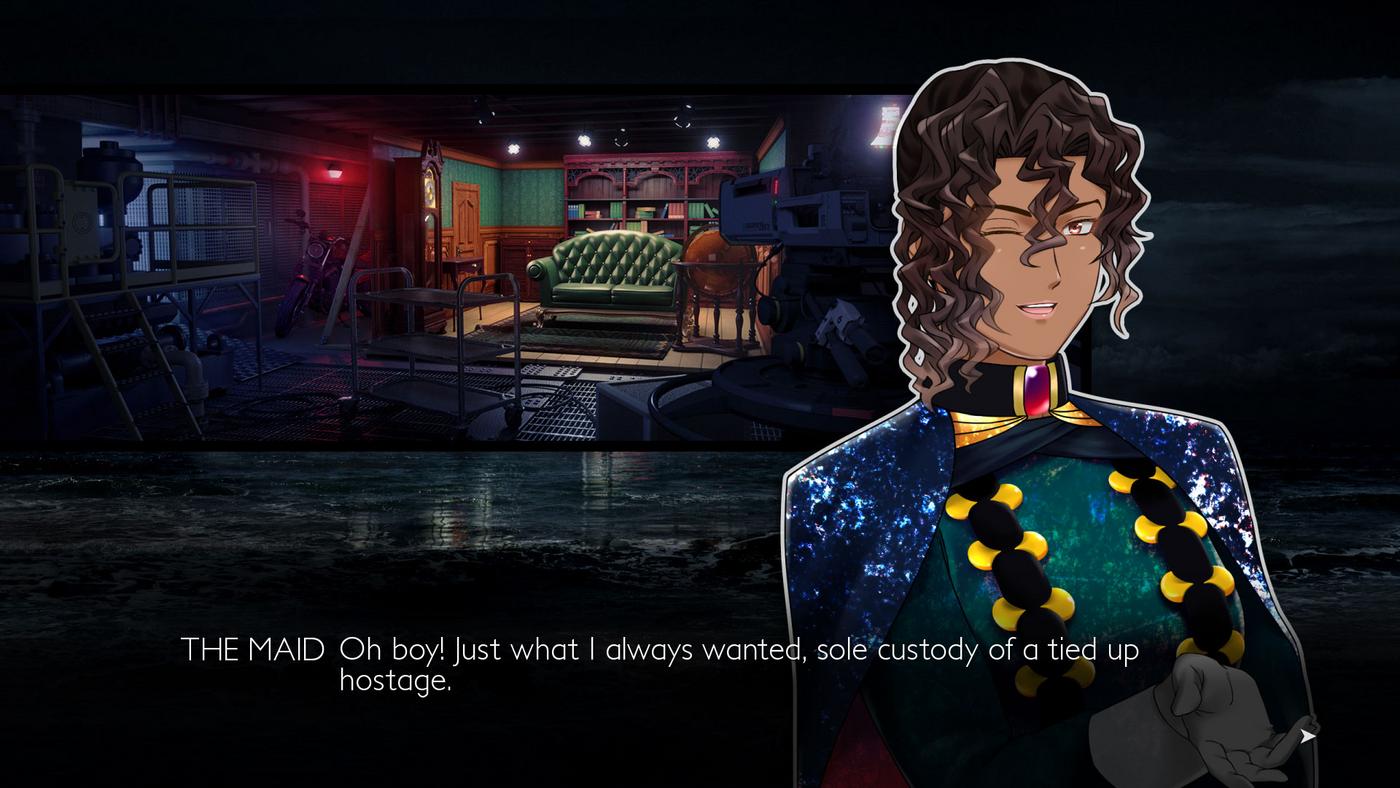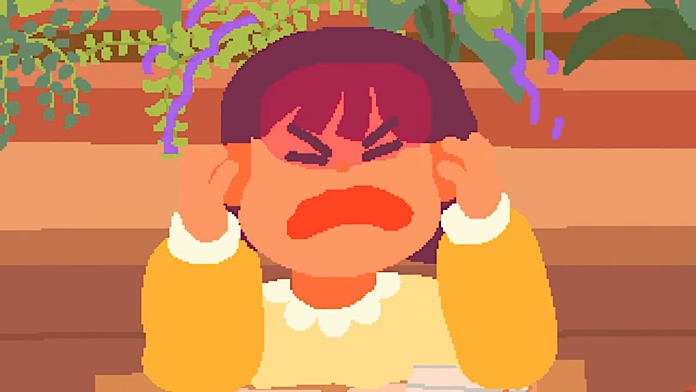
In case you missed the news, let me get you up to speed—payment processors like Visa and Mastercard have, likely at the behest of anti-porn group Collective Shout, pressured both Steam and Itch.io to either delist or limit ‘adult’ games.
These blanket bans not only sweep erotic and NSFW works into their net, but have also impacted anything with a whisper or adulthood or severe themes—particularly on Itch.io, which has deindexed thousands of games as part of its preliminary actions to comply.
I reached out to developers who were affected, including Robert Yang, who’s been making games since 2011, and is known for exploring gay culture in his games like the Tearoom.
This isn’t his first rodeo, though. His game Rinse & Repeat was banned on Twitch in 2015, given the site’s policy at the time that nudity can’t be a “core focus or feature of the game”. Its current policy is even more restrictive and hyper-specific.
“Twitch did treat me rather poorly,” he writes to me in an email. “Even if we make progress, it can always be erased later—see the ongoing erosion of trans rights in the US and UK, despite the widespread support and consensus years ago.”
When it comes to Itch, Yang notes that the site “hosts a lot of LGBTQ games and content, not just my games, and if we’re all permanently deindexed (or deleted) then we have nowhere else to go, really.”
I also talked to Jenny Jiao Hsia, whose game Consume Me was delisted per Itch.io’s new policies. Consume Me won the Seumas McNally Grand Prize for Best Independent Game this year, and follows a teenage girl dealing with the stresses and trials of an oppressive, patriarchal, and expectation-laden society.
Hsia—who replied in a jointly-written email with her colleague AP Thomson, so I’ll be referring to them as Hsia/Thomson from here on out—tells me that, thankfully, “it’s unlikely Consume Me will ultimately be negatively impacted by these changes. Itch was already going to be a very small percentage of our revenue and our Steam presence currently remains unaffected.
“We think we’ll be fine, but that is absolutely not the case for many other developers out there.”
‘The same song and dance’
Collective Shout’s mission statement is geared towards protecting women and children—and while it has since put out a post claiming that Itch.io and Steam’s responses weren’t proportional to its intent, the group was far less timid when some of its members claimed victory earlier in the month on social media, with one dubbing quite a few people “porn sick brain rotted pedo gamer fetishists”.

As an aside, payment processors withdrawing their support and causing problems for marginalised communities is not a new thing, and I’m skeptical it was an unexpected outcome—in 2021, the ACLU argued that Mastercard’s policies against “high-risk” platforms harmed the safety of sex workers by “pushing the industry deeper into the shadows.”
Both Yang and Hsia/Thomson are also entirely unconvinced: “This is the same song and dance performed by every anti-porn, anti-sex-work, and anti-LGBTQ+ organization going back decades,” Hsia/Thomson says.
“There are many many women who consume and enjoy adult content. There are many many women who produce adult content and deserve to be fairly compensated for their work. Cutting these women off from income streams and audiences does nothing to ‘protect’ them.”
Yang, meanwhile, tells me that: “Collective Shout is acting in a typical conservative anti-LGBTQ tradition with a familiar pattern: culture war morality campaigns to brand everything they dislike as pornography and obscenity.
“In the US, there’s an especially strong anti-woman and anti-feminist component to the anti-obscenity campaigns, where US conservatives want to use an old zombie law called the Comstock Law to ban not just LGBTQ expression but also abortion and birth control as ‘obscene.'”
Cutting these women off from income streams and audiences does nothing to ‘protect’ them.”
Hsia/Thomson
It’s a chilling comparison to make. The Comstock Act of 1873 was initially targeted at the postal service, making it illegal to send “obscene, lewd or lascivious” in the mail—which included any materials relating to abortion or birth control.
The law’s been revised several times over the years—and while it’s sometimes used for severe and indefensible crimes, such as in 2022, he’s not wrong in that US conservatives are attempting to weaponise it to cut off access to abortion.
We might not get videogames in the mail, but in a way, digital distributors are a postal service of their own—and asking payment processors to intervene in the place of any democratically-elected government seems even more dire.
Yang puts it in far blunter terms: “This is their ultimate goal: they want to erase the public life and autonomy of LGBTQ people and women.”
Everybody loses
The trifecta of poorly thought-out decisions (by Collective Shout, payment processors, and the platforms they’re pressuring) results in even more harm being done to indie developers, says Hsia/Thomson. The problem being, there’s just “no clear definition of what constitutes ‘NSFW content’.

“We rely on cultural norms which are loose and always being renegotiated. Naturally, right-wing groups frequently attempt to expand this cultural understanding of ‘NSFW’ content to include any speech they disagree with.”
While this is a huge problem for minorities, including LGBTQ artwork and political speech, there’s a huge weight of artistic restriction being pushed here, too. In other words, you should probably be allowed to make and sell artwork about adult topics, whether it’s smut or subversive:
“Sex is a natural part of life and culture. It just is! For many people it’s a fundamental part of the human experience and as such intersects with artistic expression in a multitude of ways! Treating it as a completely taboo subject that cannot reach the public eye protects no one and mostly helps contribute to regressive attitudes surrounding sex and sexuality.”
Yang concurs: “There’s of course a concrete material harm: many LGBTQ game makers have unstable living and housing situations, and a few hundred dollars a month of income can make or break their lives.
“There’s also a general harm against our free speech rights. Many of my experimental art games explore gay sexuality, and it’s difficult to make art about that topic without some nudity. A unilateral ban on NSFW content amounts to a ban on LGBTQ communities from engaging in political speech.”
Collective Shout and its right wing allies exploit this complexity in bad faith to justify imposing their conservative morality on all of us.”
Robert Yang
Yang, in particular, expresses a deep frustration with what he sees as selectively championing free speech from industry titans. “The larger commercial game industry champions free speech often only at their convenience. Corporate game industry lobbyists will gladly fight government regulation of violent video games and gambling, but they’re strangely silent when LGBTQ indie game makers are in the crosshairs like this.”
But what about hate speech? The paradox of tolerance is giving me a huge headache lately—while payment processors’ actions seem untenable in a democratic society (I certainly didn’t vote for any of these CEOs) the target Collective Shout used to rally its campaign, No Mercy, did glorify some repugnant stuff.
Hsia/Thomson, however, argues that—outside the news cycle of moral panics—these games tend to sputter out on their own.
“Neither of us had even heard of No Mercy prior to this recent news cycle. We still don’t know what that game is or is about and the impression we get is that it’s another one of those games that’s attempting to capitalise largely on extreme shock value. There seem to be a few of those every year and none of them amount to much even when left alone.”
While “questions like this do highlight the importance of nuance. Our feeling is that any blanket ban is going to ensnare a whole lot of legitimate artistic expression while malicious shock-content will continue to be produced, often just sidestepping the ban entirely.”
Yang more-or-less agrees: “Listen, I’m not saying this is easy to figure out or talk about. Sexuality is complicated. But Collective Shout and its right wing allies exploit this complexity in bad faith to justify imposing their conservative morality on all of us.”
It was never easy
While these recent moves are troubling, Hsia/Thomson explain to me that adult game creators—whether making material that’s titillating, challenging, or both—have never had it easy.

“Covering adult topics introduces new and exciting pitfalls,” I’m told, such as Apple having banned adult content from its app stores for some time, “in explicit contrast to how it handles books and music. Their official policy is the games are different from other art and must be censored.”
There’s also, as previously mentioned with Yang’s Rinse & Repeat, the issue of adult games being forbidden on Twitch or demonetised on YouTube. These policies “often result in demonetization on places like YouTube or shadowbanning on places like TikTok, meaning that curators and influencers are heavily disincentivized from covering your work.” Which, as one imagines, is a death knell for any struggling indie.
As part of our conversation, Hisa/Thomson recommended some of Robert Yang’s work, alongside Christine Love’s games—Ladykiller in a Bind (that also won an award in 2017) has been deindexed on Itch.io—and the work of Nina Freeman.
But what, if anything, can be done from here?
“Right now it seems like the most immediate course of action is to get as many people as possible to complain to the payment processors.”
Hsia/Thomson
“Individual developers don’t have a lot of recourse,” Hsia/Thomson write, “especially since we basically never deal with payment processors directly. Even platform holders don’t seem to have a lot of recourse given the way they’re responding to pressure.
“Right now it seems like the most immediate course of action is to get as many people as possible to complain to the payment processors.”
Both Yang, Hsia, and Thomson highlighted the aptly-named site yellat.money as a place to start, alongside an ACLU petition that’s nearing its goal of 150,000 signatures. Yang also noted that “if Collective Shout is going to wage culture war against LGBTQ people and ‘obscene’ women, perhaps it should drop its fake charity status.”
Australian charity law is a little complex when it comes to a group like Collective Shout, but to be a charity, you must be operating for the public benefit and have a charitable purpose—qualifiers Yang and his contemporaries argue aren’t being fulfilled. Charities advocating for specific political parties are forbidden, but those with specific political aims aren’t. Regardless, anyone can complain to the ACNC if they so wish.
Hsia/Thomson hope that, “given that Collective Shout was allegedly able to spur this action with only 1000 people, it stands to reason that a much larger group of people issuing sustained complaints might elicit at least some response.”
